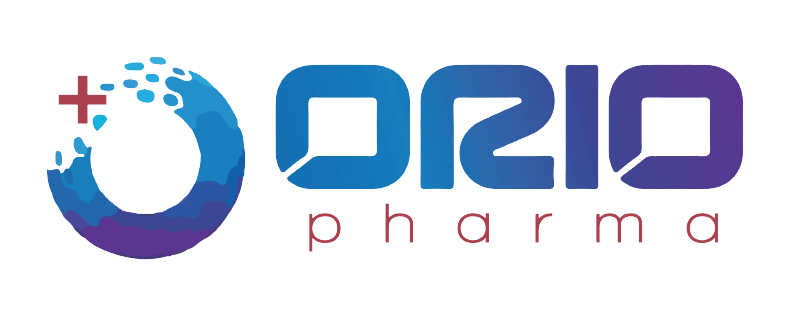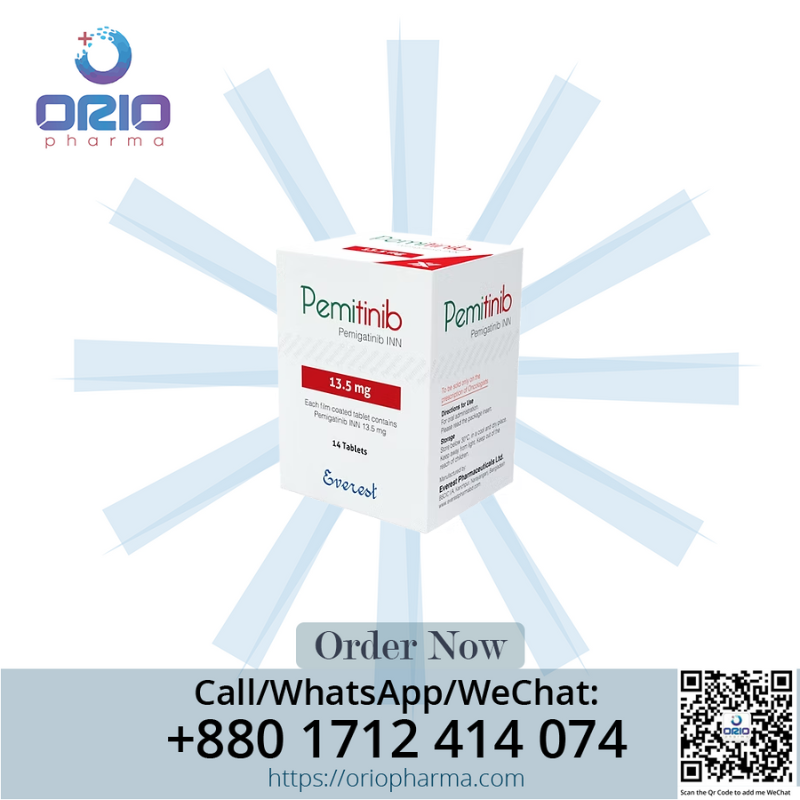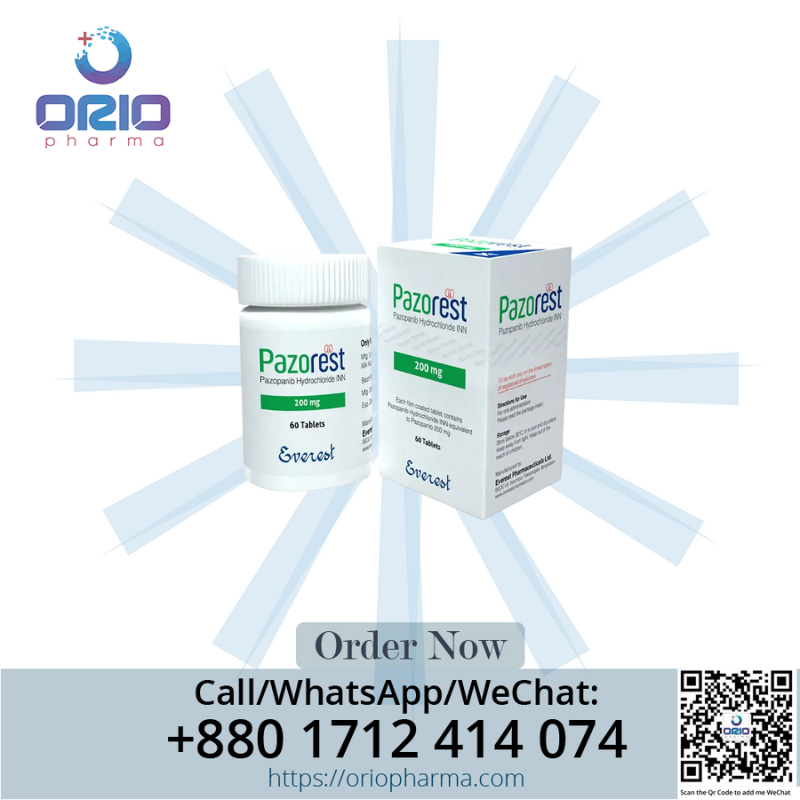Introduction
Revlixen 10 mg, formulated with the active ingredient Lenalidomide, is a powerful oral therapy used in the treatment of several blood-related cancers. As an advanced immunomodulatory agent, it is especially effective against multiple myeloma, myelodysplastic syndromes (MDS), and mantle cell lymphoma (MCL). The product is manufactured by Everest Pharmaceuticals Ltd, a cGMP-compliant and internationally accredited manufacturer, and is reliably supplied worldwide by Orio Pharma, a global leader in oncology medicine sourcing.
Lenalidomide, the active component of Revlixen, is a derivative of thalidomide with enhanced therapeutic potency and reduced toxicity. Its mechanism of action includes immune modulation, anti-angiogenesis, and direct inhibition of tumor cell proliferation.
Key Indications
Revlixen 10 mg (Lenalidomide) is approved for use in the treatment of the following conditions:
1. Multiple Myeloma (MM)
- In combination with dexamethasone for newly diagnosed patients who are not eligible for transplant
- As maintenance therapy following autologous stem cell transplant (ASCT)
2. Myelodysplastic Syndromes (MDS)
- Specifically for patients with transfusion-dependent anemia caused by low- or intermediate-1-risk MDS associated with a deletion 5q cytogenetic abnormality, with or without additional cytogenetic abnormalities
3. Mantle Cell Lymphoma (MCL)
- In adult patients whose disease has relapsed or progressed after at least two prior therapies, including bortezomib
Mechanism of Action
Lenalidomide’s multifaceted mechanism targets both malignant cells and the tumor microenvironment:
- Immunomodulation
- Stimulates T cells and natural killer (NK) cells to enhance anti-tumor responses
- Increases secretion of interleukin-2 (IL-2) and interferon-gamma (IFN-γ)
- Stimulates T cells and natural killer (NK) cells to enhance anti-tumor responses
- Anti-angiogenesis
- Inhibits endothelial cell proliferation, disrupting the tumor’s blood supply
- Inhibits endothelial cell proliferation, disrupting the tumor’s blood supply
- Direct Tumor Cell Toxicity
- Induces apoptosis and cell cycle arrest in malignant cells
- Induces apoptosis and cell cycle arrest in malignant cells
- Targeted Protein Degradation via Cereblon Pathway
- Binds cereblon, a substrate receptor of the CRL4 E3 ubiquitin ligase complex, leading to degradation of key transcription factors involved in cancer cell survival (Ikaros and Aiolos)
- Binds cereblon, a substrate receptor of the CRL4 E3 ubiquitin ligase complex, leading to degradation of key transcription factors involved in cancer cell survival (Ikaros and Aiolos)
This multi-mechanistic approach is particularly effective in hematologic malignancies that are resistant to conventional chemotherapy.
Dosage and Administration
Revlixen 10 mg is taken orally, and dosage is individualized based on indication, combination therapy, renal function, and tolerance.
Suggested Dosing:
- Multiple Myeloma (Maintenance Therapy):
- 10 mg once daily on Days 1–21 of repeated 28-day cycles
- Dose may be escalated to 15 mg daily after 3 cycles if tolerated
- 10 mg once daily on Days 1–21 of repeated 28-day cycles
- Myelodysplastic Syndromes (MDS):
- 10 mg once daily, continuously (until disease progression or unacceptable toxicity)
- 10 mg once daily, continuously (until disease progression or unacceptable toxicity)
- Mantle Cell Lymphoma (MCL):
- 25 mg once daily (may be adjusted; 10 mg in renal impairment)
- 25 mg once daily (may be adjusted; 10 mg in renal impairment)
Administration Notes:
- Administer at the same time each day
- May be taken with or without food
- Swallow capsules whole—do not open, break, or chew
- Avoid handling crushed or broken capsules due to potential teratogenic effects
Pharmacokinetics
- Absorption: Rapid with peak plasma levels in ~1 hour
- Bioavailability: Nearly 100%
- Metabolism: Minimal hepatic metabolism
- Excretion: Primarily renal elimination (~80% unchanged)
- Half-life: Approximately 3 to 5 hours in healthy subjects
Dose adjustments are recommended for patients with renal impairment due to reduced clearance.
Contraindications
- Hypersensitivity to Lenalidomide or excipients
- Pregnancy (Category X): High risk of birth defects
- Breastfeeding is contraindicated due to unknown excretion in human milk
Women of reproductive potential must adhere strictly to contraception and pregnancy prevention protocols. Male patients must use protection if sexually active with women of childbearing potential.
Warnings and Precautions
1. Teratogenicity
Lenalidomide is a potent teratogen and can cause life-threatening birth defects. A Risk Evaluation and Mitigation Strategy (REMS) must be followed.
2. Myelosuppression
Neutropenia and thrombocytopenia are common. Monitor complete blood count (CBC) weekly for the first 8 weeks, then monthly.
3. Venous Thromboembolism (VTE)
There is an increased risk of DVT and pulmonary embolism, especially when combined with dexamethasone. Prophylactic anticoagulation should be considered.
4. Tumor Lysis Syndrome (TLS)
At risk in patients with high tumor burden. Appropriate hydration and monitoring are essential.
5. Hepatotoxicity
Elevated liver enzymes and rare cases of liver failure have been reported. Periodic liver function tests are recommended.
6. Second Primary Malignancies (SPM)
Increased incidence observed during clinical trials. Long-term follow-up is essential.
Adverse Reactions
Common Adverse Effects:
- Fatigue
- Constipation or diarrhea
- Nausea
- Rash or pruritus
- Dizziness
- Edema
- Muscle cramps
Hematologic Adverse Effects:
- Neutropenia
- Anemia
- Thrombocytopenia
Serious Adverse Effects:
- Deep vein thrombosis
- Pulmonary embolism
- Hepatotoxicity
- Severe skin reactions (Stevens-Johnson Syndrome, Toxic Epidermal Necrolysis)
Patients should be counseled to report any signs of infection, unusual bleeding, or allergic reactions immediately.
Drug Interactions
- P-gp Inhibitors/Inducers: May alter Lenalidomide plasma levels
- Warfarin or other anticoagulants: Risk of bleeding; monitor INR closely
- Erythropoietin-Stimulating Agents: Combined use may further increase VTE risk
Unlike many chemotherapeutics, Lenalidomide has a low risk for CYP450-mediated interactions.
Use in Special Populations
Pregnancy and Lactation
- Contraindicated
- Strict adherence to contraceptive measures is required
Geriatric Use
- No specific dose adjustment, but renal function must be evaluated
Renal Impairment
- Dose reduction is required based on creatinine clearance
Pediatric Use
- Safety and effectiveness not established in patients under 18 years of age
Clinical Efficacy
Multiple Myeloma
In pivotal Phase III studies, Lenalidomide demonstrated significant improvements in progression-free survival and overall response rates in both newly diagnosed and relapsed myeloma patients.
MDS with del(5q)
Up to 67% of patients achieved transfusion independence, and cytogenetic responses were observed in a majority of treated individuals.
Mantle Cell Lymphoma
Lenalidomide demonstrated an overall response rate of over 28% in heavily pretreated patients.
Storage and Handling
- Store at 15°C to 30°C (59°F to 86°F)
- Protect from light and moisture
- Keep out of reach of children
- Capsules should remain in the original blister packaging until use
- Handle with gloves and avoid contact with broken capsules
Packaging Information
Each unit of Revlixen 10 mg (Lenalidomide) is packaged in child-resistant blister packs with clear labeling, including dosage strength, batch number, manufacturing date, and expiry date. All packaging is compliant with international quality and pharmacovigilance regulations.
Conclusion
Revlixen 10 mg (Lenalidomide) is a highly effective oral agent used in the management of multiple hematologic malignancies. Its multiple mechanisms of action—immunomodulation, anti-angiogenesis, and direct tumor cell inhibition make it a critical option in contemporary oncology. With a well-defined safety and efficacy profile, Revlixen is a trusted choice for clinicians around the world. Manufactured by Everest Pharmaceuticals Ltd and globally supplied by Orio Pharma, Revlixen represents a benchmark in oral immunomodulatory therapy.





